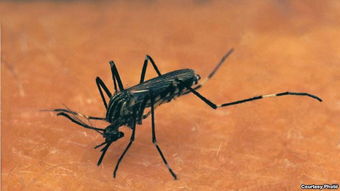
Mosquito Bites: A Comprehensive Guide
Have you ever found yourself scratching at an itchy mosquito bite? If so, you’re not alone. Mosquito bites are a common occurrence, especially during the warmer months. In this article, we’ll delve into the details of mosquito bites, including their causes, symptoms, treatment, and prevention methods. Let’s get started.
Understanding Mosquito Bites

Mosquito bites occur when a female mosquito feeds on your blood. These insects are attracted to humans due to the carbon dioxide we exhale, body heat, and the scent of our skin. Once a mosquito lands on your skin, it inserts its proboscis, a long, slender tube, to draw blood. This process can cause irritation and discomfort.
Causes of Mosquito Bites

The primary cause of mosquito bites is the female mosquito’s need for blood to produce eggs. Male mosquitoes do not feed on blood and are not responsible for bites. Female mosquitoes are drawn to humans and other animals for this purpose.
Symptoms of Mosquito Bites

The symptoms of a mosquito bite can vary from person to person. Common symptoms include:
| Symptom | Description |
|---|---|
| Itching | The most common symptom, caused by the mosquito’s saliva, which can trigger an allergic reaction in some individuals. |
| Pain | Immediate pain upon the bite, which can last for a few seconds. |
| Inflammation | A red, swollen area around the bite, which can be tender to the touch. |
| Bruising | In some cases, the bite may cause bruising or discoloration of the skin. |
| Swelling | The area around the bite may become swollen, especially if an allergic reaction occurs. |
Some individuals may experience more severe symptoms, such as anaphylaxis, a life-threatening allergic reaction. If you experience difficulty breathing, swelling of the throat, or hives, seek medical attention immediately.
Treatment of Mosquito Bites
Most mosquito bites are mild and can be treated at home. Here are some effective treatment options:
-
Wash the bite with soap and water to prevent infection.
-
Apply a cold compress to reduce swelling and itching.
-
Use over-the-counter antihistamines or hydrocortisone cream to relieve itching and inflammation.
-
Consider using a homeopathic remedy, such as arnica or calendula, to soothe the bite.
-
Avoid scratching the bite, as this can lead to infection.
In some cases, a mosquito bite may become infected. Signs of infection include increased pain, redness, swelling, and pus. If you suspect an infection, consult a healthcare professional.
Prevention of Mosquito Bites
Preventing mosquito bites is crucial, especially if you live in an area with a high mosquito population. Here are some effective prevention methods:
-
Wear long-sleeved shirts and pants when outdoors, especially during dawn and dusk when mosquitoes are most active.
-
Use insect repellents containing DEET, picaridin, or oil of lemon eucalyptus. Apply the repellent according to the manufacturer’s instructions.
-
Remove standing water from your property, as mosquitoes breed in stagnant water.
-
Install screens on windows and doors to prevent mosquitoes from entering your home.
-
Consider using a mosquito net over your bed, especially if you live in a high-risk area.
By understanding the causes, symptoms, treatment, and prevention of mosquito bites, you can take steps to protect yourself and your loved ones from these pesky insects.



